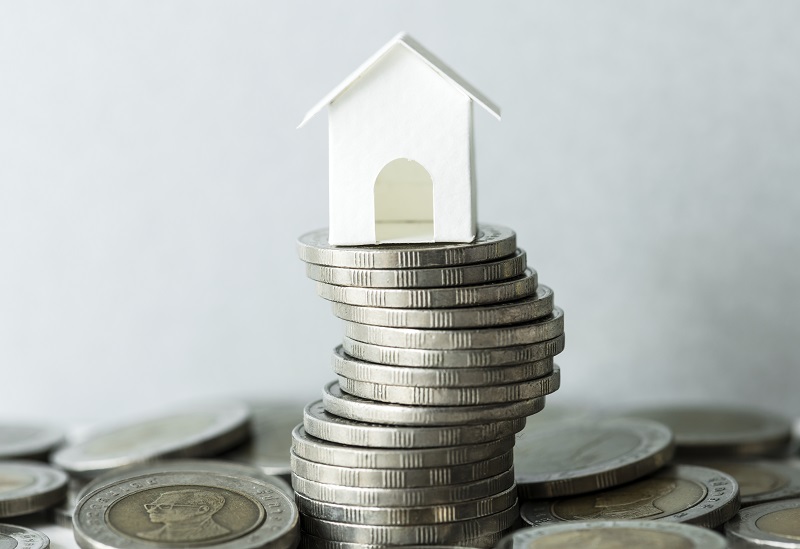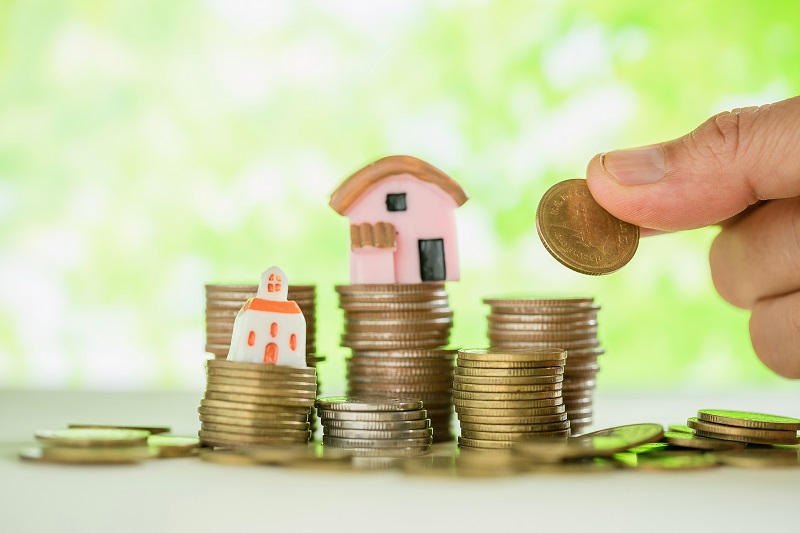-
Menu
-
Close

Homeowners can yield significant benefits by taking strategic financial decisions that help them to build home equity. Home equity refers to the value of a property that homeowners own free and clear. Hence, by building home equity, homeowners can improve their financial flexibility, increase borrowing power, and even gain potential for retirement income. Home equity is also a significant component of a large number of people’s household wealth. As a result, homeowners can gain exceptional benefits by working toward building home equity.
In this article, the concept of home equity will be thoroughly discussed as to how it demonstrates an array of benefits for homeowners.

On the other hand, With negative equity, you can’t just sell the house and erase your debt. That’s why people might lose their homes to foreclosure or short sales if a crisis situation such as a recession arises.
To understand equity more clearly, imagine the value of your home or property is 10,000,000 BDT and you owe 4,000,000 BDT. So, your equity is positive and it is 6,000,000 BDT. Increasing equity simply means increasing the difference between your home value and the amount you owe on your mortgage. It can be done either by increasing the value of your property or by decreasing the amount of money you owe.
As explained earlier, home equity can be both positive and negative depending on external factors. In a perfect world, your equity would grow as you paid down your mortgage. Since equity is just the difference between the value of your property and the amount still owed on your mortgage, this makes perfect sense. If, on the other hand, your home’s value is falling, the opposite is true.
Hence, there are some external factors that may determine the value of your property and ultimately impact your home equity. For example, a recent road or bridge construction that makes your neighborhood more accessible than before can dramatically increase the value of your property and increase your home equity. On the other hand, closing down a busy market or educational institute can negatively impact the value of your property and may cause your home equity to decrease. These factors are usually beyond your control. Similarly, if you live in a city with a declining population and aging housing, home equity can decline over time. It will continue to decline even if you pay your mortgages. The condition of your house has a direct impact on your home equity.
Even if you have little control over the property market, there is something you can do to protect your home’s value: keep it in good repair. It’s always going to be easier to sell a home that has been kept in pristine condition than one that hasn’t been.

Building home equity is a wise financial decision that can yield numerous benefits for homeowners. Let’s try to look at some of the major benefits that you can enjoy by building your home equity:
Gaining equity in a property allows you to borrow money at lower interest rates. Homeowners who have built up sufficient equity in their properties may use that equity as collateral to get loans and credit lines at interest rates below those offered by other lenders. Homeowners who need money for major expenditures like repairs, upgrades, or their children’s education can benefit greatly from this. With a home equity loan, you can receive your required funds at once and can start paying back the debt over a period of up to 30 years, depending on the amount of your home equity. However, you must be careful before taking a loan that you cannot pay back timely. Because if you fail to provide it, you could lose your home. So, before utilizing this benefit of your home equity, calculate and thoroughly think about your financial stability.
In addition to the previous benefit, you are entitled to get loans with lower interest by capitalizing on your home equity. Lenders value and see your high home equity as less of a risk and they accept to provide loans on cars, education, repairs, or any other categories with lower interest rates. Hence, you can save a huge amount of money by repaying your loans at lower interest rates over the course of your life.
The equity a homeowner has built up in their property might be used as a retirement income stream. They can downsize once they’ve paid off their mortgage and use the equity to supplement their retirement income. A reverse mortgage is another option that allows homeowners to access their home’s equity without having to move away. If you own a house and are looking to boost your retirement savings, this could be a great option for you.
When you need to refinance your mortgage to acquire a lower interest rate or get extra funding for other obligations, a cash-out refinance can be a viable option. It’s a new, larger mortgage that can replace your existing mortgage and let you borrow up to 80% of your home’s worth. The sum you receive is the difference between your old and new mortgage. This is an excellent benefit that you can draw from your high home equity.
Having a cushion of home equity to ride out market downturns is another perk of investing in real estate. High equity protects homeowners from foreclosure or bankruptcy in the event of a decline in the housing market by reducing the likelihood that they will owe more on their mortgage than their home is currently worth. This can give households assurance and security in the face of economic volatility. But if you already have comparatively lower equity, then you might not be able to enjoy this benefit. So, you should try to maintain higher home equity.
Some people get started with a cheaper house, then sell and move up when they can afford it more. When you sell your house after years of ownership, the equity you’ve built up can be used as a down payment on another property. So, if you cannot afford your dream home right now, you can always purchase a smaller home that fits your budget but has a high potential to gain value after some years. It can be a great financial investment toward a future where you plan to purchase a new home.
After years of homeownership, some people get overwhelmed by the challenges they face in maintaining their homes. So, if you are one of them, then you can always decide to sell your home and get a cash return on all of your equity and use it however you want. It is one of the greatest benefits that you can draw from your home equity. Furthermore, the value of the property does not generally depreciate. So, almost certainly you can always get more cash than what you had previously invested to purchase the house.
Having a high home equity is always considered a good financial position to be in. It can give you peace of mind that you won’t go under the water even recession or crisis situation arises. With higher equity, you can always sell your home and walk away with a good amount of cash. For example, if you sell your home for 7,000,000 BDT and you owe 2,000,000 BDT on the mortgage, then you will still get away with 5,000,000 BDT. On the other hand, you should try your best to avoid being in a position where you have negative home equity. You cannot pay your debts even when you sell your home with negative home equity, which can seriously impact your financial conditions.
After seeing so many benefits of having high home equity, you might wonder what you can do to increase it. Let’s try to look at some of the most effective ways of building home equity:
Having a strong home equity can offer a range of benefits for homeowners. However, you must be extra careful before you start tapping into your home equity. Some of the benefits can also turn into major disadvantages unless you are absolutely sure what you want to do. Hence, try to maintain high home equity by paying your mortgages timely and keeping your home free of damage to enjoy the benefits of home equity.
Ans: Value corresponds to the actual worth of your house or property and home equity refers to the difference between the value of your home and any outstanding mortgage or loan balances.
Ans: Building home equity can help you save money by increasing your borrowing power and reducing the interest rates on loans.
Ans: Yes, you can tap into your home equity even before you have paid your mortgages.
Ans: There are some risks associated with building home equity such as if the housing market takes a nosedive and the value of your house falls dramatically, then all the money you have invested in your house will be lost.
Ans: Yes, you can take a reverse mortgage and use it as a source of retirement income without moving out of your house.